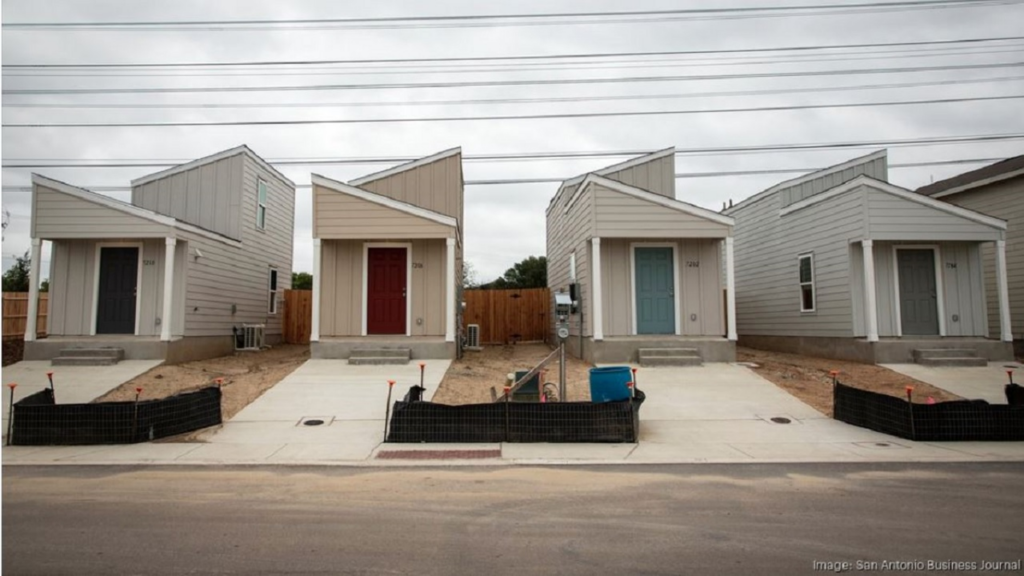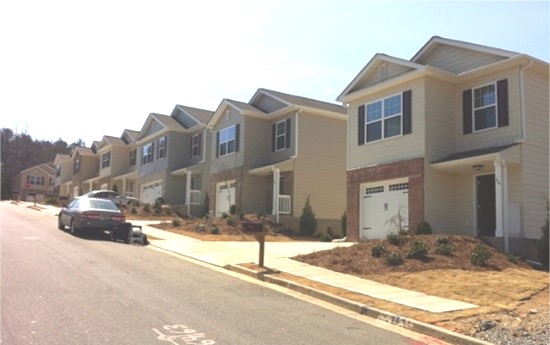In recent years, several of the top 100 homebuilders in the U.S. have started exploring partnerships with offsite and modular construction companies to streamline building processes, reduce costs, and address the challenges posed by labor shortages and housing demand. These partnerships signify a growing interest in alternative construction methods that promise faster build times, enhanced quality control, and sustainable practices.
Let’s take a closer look at how some of the largest players in the housing market are approaching this innovative building technique.

photo – Realtor
Lennar Corporation’s Strategic Collaborations with Modular Companies
One of the most notable examples is Lennar Corporation, one of the largest homebuilders in the United States. Lennar has actively invested in modular and innovative construction methods through its subsidiary, LenX. LenX was created to identify and partner with companies that offer cutting-edge technologies capable of transforming the construction industry.

photo – Lennar
Lennar’s partnership with Veev, a modular construction company, illustrates their commitment to these methods. Veev specialized in manufacturing panels that come pre-installed with mechanical, electrical, and plumbing systems, streamlining on-site construction. The company’s approach, using steel-framed, waterproof panels, enabled significantly faster assembly times compared to traditional construction methods. Veev’s system was deployed in a project in Northern California, highlighting the potential for modular construction to meet the growing demand for housing while reducing labor-intensive site work.
Unfortunately, Veev faced operational difficulties and failed to scale its operations effectively. In 2023, Lennar acquired the remaining assets of Veev after the company declared bankruptcy, signaling both the promise and the challenges of scaling modular construction in the U.S.
Lennar also partnered with ICON, a Texas-based company known for its 3D-printed homes. ICON uses robotic construction technology to create homes by layering a concrete-like material to build walls. This method offers both speed and cost efficiency, especially for affordable housing projects. Through this partnership, Lennar aimed to reduce construction costs and times while maintaining high quality and meeting stringent building codes. The partnership with ICON, along with its investment in Veev, shows Lennar’s proactive approach to integrating offsite construction innovations into its mainstream operations.
Clayton Homes: Modular Construction at Scale
Another leader in modular construction is Clayton Homes, a subsidiary of Berkshire Hathaway. Clayton Homes is one of the largest manufacturers of modular and manufactured homes in the U.S. While many traditional builders dabble in modular construction, Clayton has built its entire business model around offsite construction.

photo – Clayton Palms
Clayton operates multiple factories across the country that produce homes in controlled environments, which are then transported to building sites for final assembly. This approach offers significant advantages in terms of quality control, reduced construction waste, and shorter build times. By building homes in a factory setting, Clayton can also better control the materials used and ensure homes are constructed to exacting standards, with less susceptibility to delays caused by weather conditions.
Clayton’s scale and experience in modular construction position it as a key player in the future of offsite building, especially as demand for affordable housing rises in many parts of the country.
PulteGroup and D.R. Horton: Testing the Waters
While PulteGroup and D.R. Horton, two of the largest homebuilders in the U.S., primarily focus on traditional on-site construction methods, both companies have shown interest in modular construction as a way to boost efficiency and meet growing housing demands.
PulteGroup has explored modular construction in specific markets, particularly in urban areas where space and time constraints make offsite construction appealing. By using prefabricated components, Pulte can reduce construction times, which is critical for developments where speed to market is essential. While modular construction does not yet represent a large portion of PulteGroup’s portfolio, their exploration of these methods suggests that they see value in offsite construction techniques for specific projects.
Similarly, D.R. Horton, the largest homebuilder in the U.S. by volume, has experimented with modular construction to reduce labor costs and construction timelines in certain markets. By building components of homes offsite and assembling them on location, D.R. Horton can minimize disruptions and delays caused by weather and labor shortages. This approach allows them to deliver homes faster, which is particularly important as they seek to maintain their leadership in a competitive market.
The Growing Role of Modular Construction in the U.S.
The partnerships between large homebuilders like Lennar, Clayton Homes, PulteGroup, and D.R. Horton with offsite construction companies reflect a broader trend in the housing market. Modular construction, while still a small part of the industry, is gaining traction as a viable solution to some of the biggest challenges facing builders today: labor shortages, rising costs, and increasing demand for affordable housing.
By building homes or components in a controlled factory environment, modular construction offers several advantages over traditional methods including reduced build times, improved quality control and cost savings. The rise of companies like Veev, ICON, and Clayton Homes, and their partnerships with large builders, indicates that modular construction will continue to play an important role in the future of homebuilding in the U.S. As these companies refine their processes and technologies, more of the top 100 homebuilders will likely adopt modular methods in the years to come.
Modcoach Note
Several top U.S. homebuilders, including Lennar Corporation, Clayton Homes, PulteGroup, and D.R. Horton, are exploring modular construction as a way to address the industry’s growing challenges. Whether through partnerships with companies like Veev and ICON or by developing their own offsite construction capabilities, these homebuilders are at the forefront of innovation in the housing market. As modular construction continues to evolve, it has the potential to reshape the future of homebuilding in the United States, offering faster, more efficient, and cost-effective solutions to meet the housing needs of the future.
.
CLICK HERE to read the latest edition
Contact Gary Fleisher












